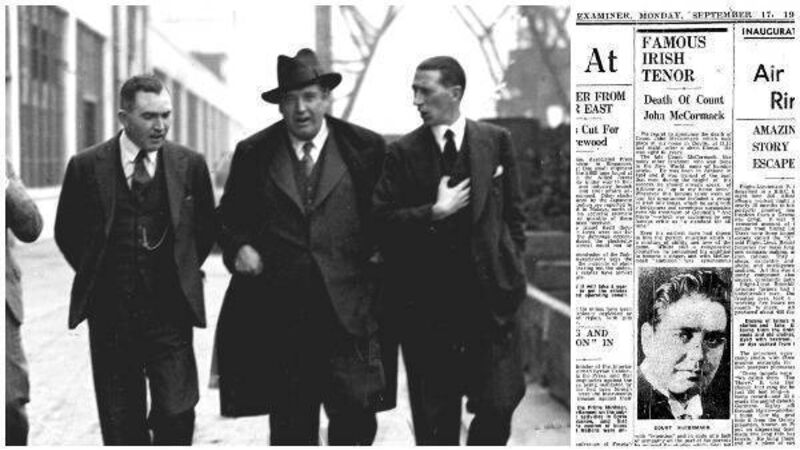Examiner 180, from our archives: A report of the death of Count John McCormack

Count John McCormack on a visit to the Ford Motor Company in Cork in 1930. He's accompanied by factory MD, Eugene Clarke, and US pianist Edwin Schneider; right, the news report of McCormack's death. Pictures: Irish Examiner Archive
John McCormack was not only one of Ireland's first music stars, he was one of the first international megastars of any nationality. His career coincided with the rise of radio as a medium, and the Athlone man became a hugely popular figure in both the UK and the US.
In the latest of our arts/culture reports from the archives to mark the Examiner's 180 years in existence, we see how McCormack's death in 1945 was big news, even in the midst of so many war-related tales.







